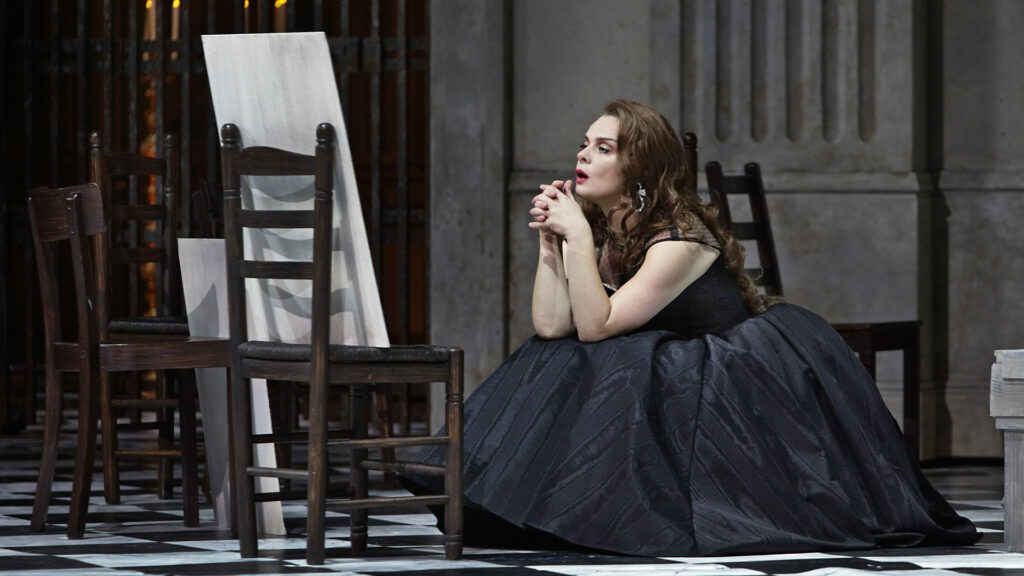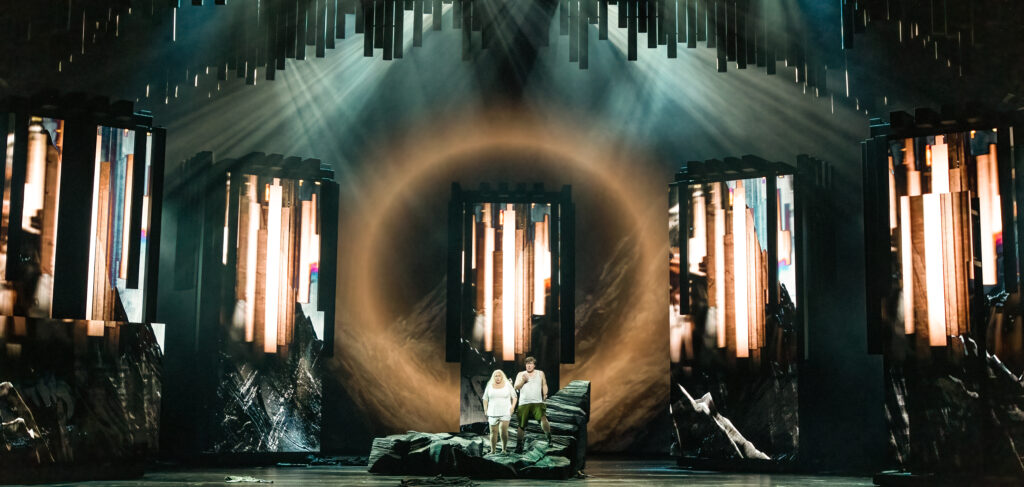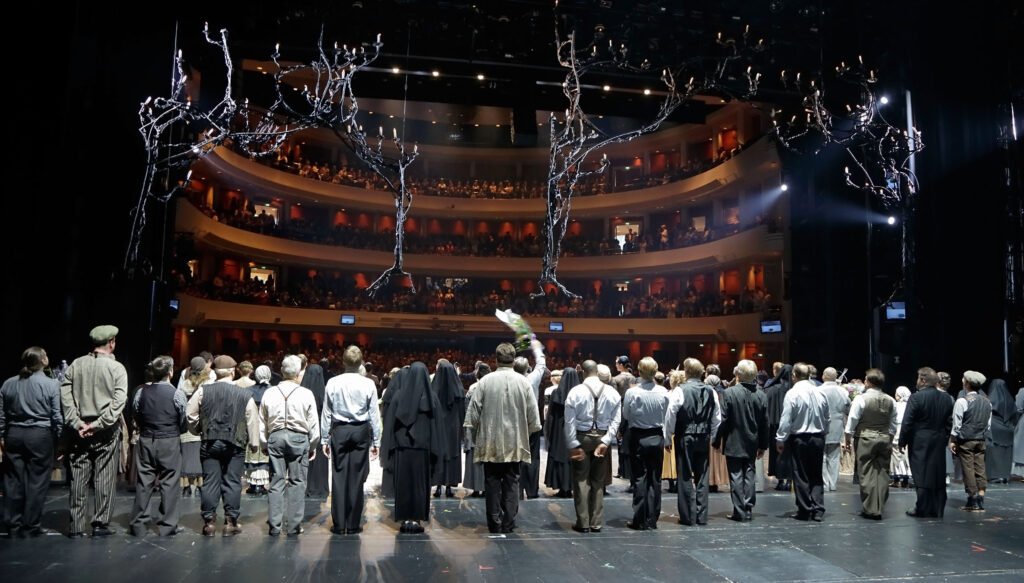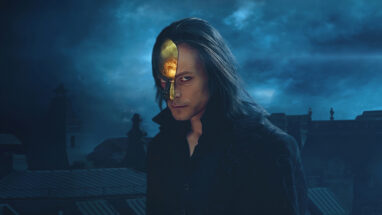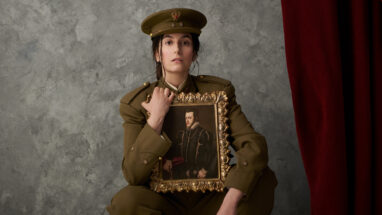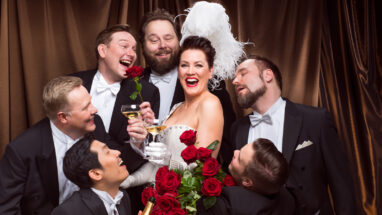
A beginner’s guide to opera
This concise guide explains how to follow the story of an opera, what an aria is, and how to pick the right production for your first visit.
WHAT IS OPERA?
An opera is a complete musical work with a story, performed on stage. Operas always feature singers and an orchestra, as well as sets and costumes that take the audience into a different world.
Operas are usually based on existing stories, books, or poems. The text of an opera is known as the libretto. Love, betrayal, and death are recurring themes in operas. Besides tragic stories, there are also light-hearted and humorous operas. The plot of an opera can be a simple love triangle, a complex web of relationships, or even a contemplation on humanity based on myths and rituals. You can always learn about the plot in advance from the opera’s website or the program booklet. One thing is for sure: when you’re at the opera, emotions are visible and audible. Passion, joy, sorrow, anger, and longing are the foundations of opera music.
The oldest operas date back to the 16th century, and new ones are continually composed. The most famous opera classics were created between the late 18th century and the early 20th century, and they are constantly being reinterpreted. When an old opera sees a new premiere, the music is performed as originally composed, but the direction, costumes, and sets are different. The opera can be adapted, for instance, into a futuristic dystopia or it can stay true to its 19th century style. In terms of themes, the world has changed a lot since the 19th century, so there’s much discussion about which works are still relevant and appropriate today.
Because the themes and emotions in music are timeless, they resonate with today’s audiences just as they did in the past. That’s the secret to the enduring popularity of opera classics.
LIVE MUSIC AND FAMILIAR MELODIES
Opera is live music at its best. It’s performed by a large orchestra and sung by a group of soloists and a choir. The music is conducted by a conductor. The melodies of the most popular operas are catchy and often used in commercials, so you’re likely to recognise The Queen of the Night Aria, Nessun Dorma, and Ride of the Valkyries.
Opera is a highly demanding art form for the singers. Professional opera singers train their voices for years so they can project them over a large orchestra without a microphone.
The singers’ roles in opera are determined by their vocal ranges. The highest pitched sopranos often play the female protagonists. The lower pitched mezzo-sopranos and altos tend to sing roles like mothers or witches, though in the world-famous opera Carmen, the lead role is a mezzo-soprano. Tenors are the male protagonists who often fall in love with the sopranos and sing in high and powerful tones. Basses have the deepest voices and their typical roles include villains, priests, or kings. Baritones, which fall in between these two vocal ranges, are the most common male roles in operas.
There are many kinds of musical numbers in an opera performance. An aria is a solo song, in which a character often reveals their emotions to the audience. Duets feature two singers, while in ensemble scenes multiple soloists move the plot forward with their dialogue. Then there are the grand choral scenes, in which dozens of professional singers fill the stage with their powerful voices and energy.
HUNDREDS OF PROFESSIONALS WORKING TOGETHER
The sets for operas are often built in the opera companies’ own workshops, where you will find painters, carpenters, and metalworkers. The costumes are made in the costume department and sewn so that they can be easily adjusted to fit whoever is singing the role. Because operas are performed again and again over the years, the costumes and sets need to be durable. Opera houses have a strong tradition of craftsmanship, with professionals from cobblers to carpenters, hat makers, and jewellers working behind the scenes.
The finishing touches are added by lighting and stage technology experts. In the team behind an opera performance, there are dozens of people who you might never see at all.
PICKING YOUR FIRST OPERA
So, how do you choose the right opera for your first visit? A good way to get started is to explore the classics in the repertoire. They’ve earned their reputation for a reason – classics are works that continue to captivate audiences time and time again. However, your first opera experience doesn’t have to be a firm audience favourite. Some people start off with an hour-long contemporary opera, while others opt for a five-hour spectacle. You never know what kindles a passionate love for this amazing art form. All you need is an open mind and heart.
It’s good to remember that operas are typically in the repertoire for a fairly short period of time, usually about one month, and there may only be a few performances. This is because each season at the Opera House features many different productions, which must all be scheduled in. The ideal time to secure the best (or most affordable) seats is typically a few weeks before the performances begin, when there are still plenty of tickets available.
Recommendations for first timers 2024–2025
Text TUIKE LEHKO
Photos HEIKKI TUULI, MIKKI KUNTTU, MIKKO RYHÄNEN

